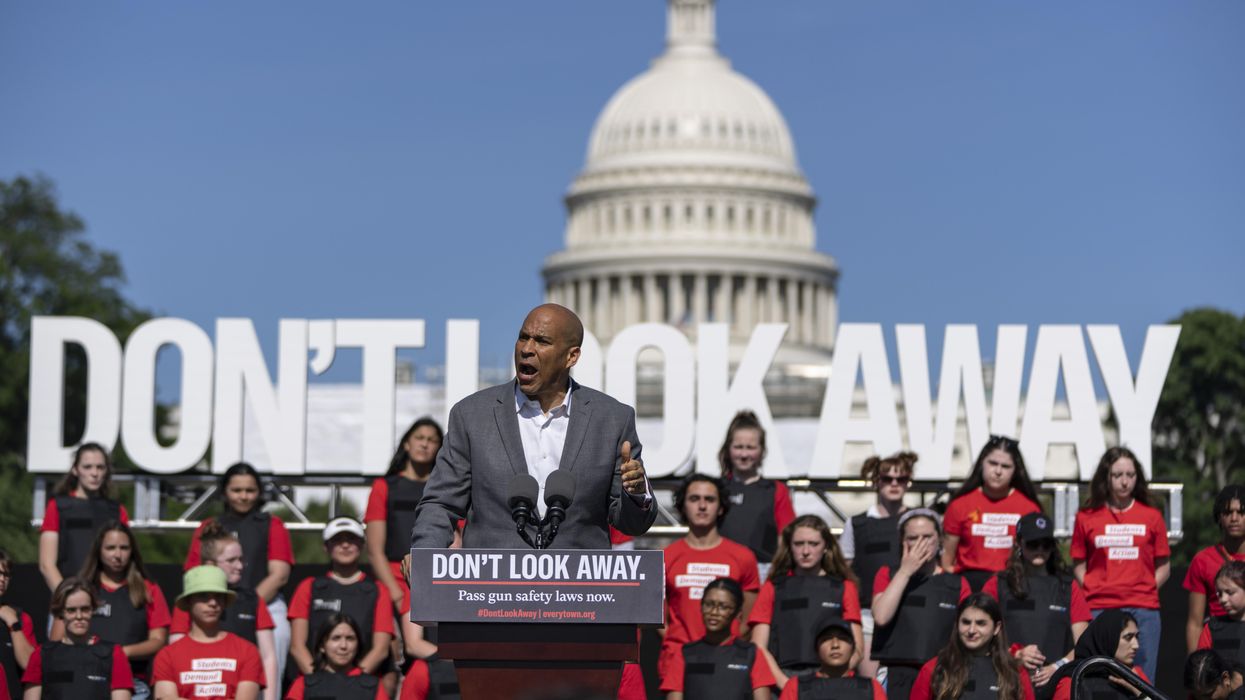Cherry is a member of the board of Independent Voting and president of the Leaders Network.
May 14 – Ten Black shoppers are shot to death at a Buffalo, N.Y., supermarket.
May 24 – Nineteen children and two adults, most of them Latino, are gunned down at an elementary school in Uvalde, Texas.
Two mass shootings. Ten days apart.
In the nearly 10 years since the Sandy Hook massacre, we have seen 49 people from the LGBTQ community killed in Orlando in 2016; 60 people killed and 411 people wounded, most of them white, at a concert in Las Vegas; and 11 Jewish people killed at a synagogue in Pittsburgh in 2018. The victims are diverse and include every race, ethnicity, religion and sexual orientation in America.
There are too many more mass shootings to list in this space. All of the mass shootings follow a similar pattern:
- Shock and sadness at the first word of breaking news.
- Live coverage from the media to present the accurate number of casualties to their viewers.
- Calls for our elected officials to take action.
No. 3 never leads to action. Because it can’t. America’s politicians operate in a broken political system that rewards partisanship and punishes collaboration. Republicans running for office in closed Republican primaries can’t be “shamed” into changing their positions on gun safety legislation. In fact, supporting this type of legislation guarantees they will be defeated in a primary challenge.
What about the Democrats? Nearly all of their anti-violence proposals are less about actually saving lives and more about staking out positions that will help them stave off potential challengers in closed primaries.
Neither party wants to break the current political stalemate by opening more primaries, ending partisan gerrymandering, and opening the ballot and debates to independent candidates, which means neither party is seriously committed to ending the barbaric carnage in our stores, schools, places of worship, movie theaters, workplaces or concerts. To quote the late head coach of the Green Bay Packers, Vince Lombardi: “Winning isn’t everything; it’s the only thing.”
We are a nation of 350 million diverse people with two political parties who control how we respond – or don’t respond – to our nation’s gun violence, which claims over 20,000 lives a year.
Principled people must get together and collaborate to solve our problems – including our nation’s violence, poverty, the economy and everything else. Let’s begin organizing outside of the limitations and handcuffs of the two-party system and begin ending the political paralysis that leaves more and more Americans in mourning. It is why I am proud to be an independent, specifically a board member of Independent Voting. Whether or not you identify as an independent, take a moment to take our survey.



















Trump & Hegseth gave Mark Kelly a huge 2028 gift